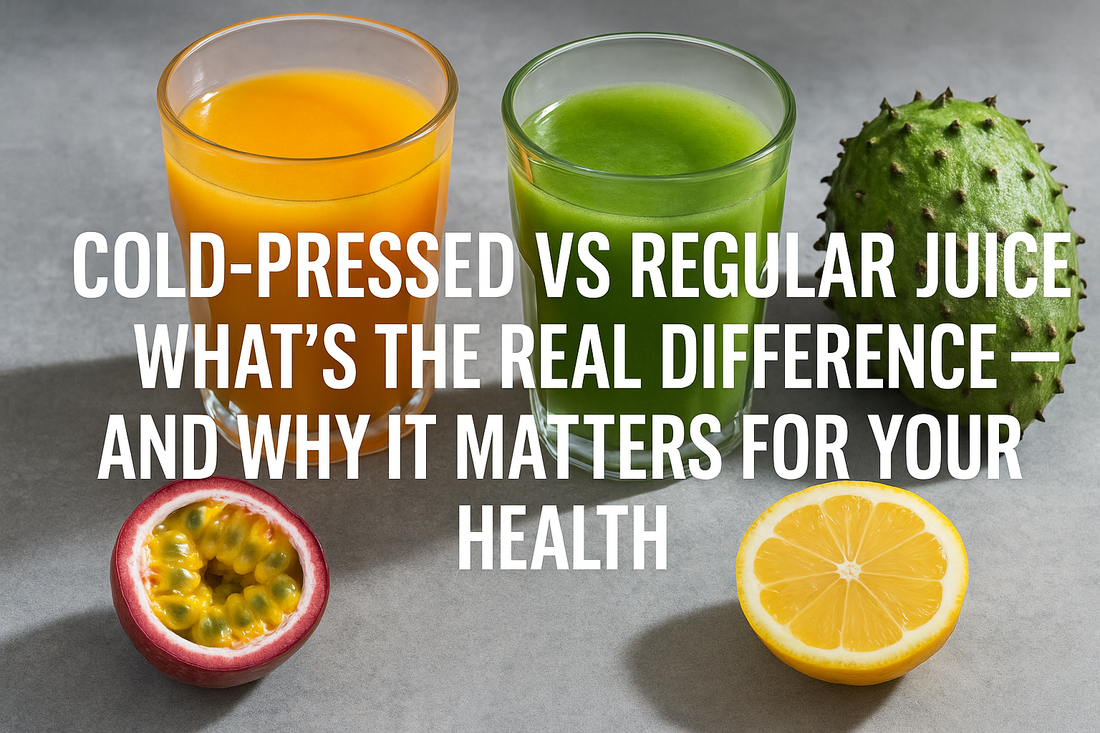Cold-Pressed vs Regular Juice: What’s the Real Difference — and Why It Matters for Your Health

Not all juices are created equal — and no, that’s not just marketing talk. Cold-pressed juice is having its moment, but is it really worth the hype? What does “cold-pressed” even mean — and why are fitness coaches, wellness influencers, and nutritionists swearing by it?
Let’s unpack the real difference between cold-pressed and regular juice — and why your morning glass might be due for an upgrade.
🔧 How They’re Made: Heat vs Pressure
-
Regular juice (like what you get in cartons) is made using high-speed centrifugal juicers or pasteurization. This process involves heat, which breaks down enzymes and reduces nutrient retention.
-
Cold-pressed juice is extracted using hydraulic pressure without heat. That means the enzymes, vitamins, and phytonutrients stay intact.
🍋 Nutrient Retention: Cold-Pressed is a Winner
Vitamin C, polyphenols, and enzymes start breaking down once heat hits. Studies show that cold-pressed juice retains up to 5x more nutrients than conventional juice.
For example:
-
Cold-pressed passion fruit juice preserves its magnesium, vitamin A & C better
-
Soursop juice maintains its antioxidant acetogenins and gut-calming compounds
🌿 Shelf Life Without the Guilt
Cold-pressed doesn’t mean “no shelf life.” Thanks to techniques like HPP (High Pressure Processing), cold-pressed juices can stay fresh for up to 21 days — without added preservatives.
💥 The Functional Edge
Because nutrients stay intact, cold-pressed juices don’t just hydrate — they heal, energize, and balance. Whether it’s dragon fruit for glowing skin, or guava for immunity, cold-pressed makes the benefits real.
🥤Final Sip:
If you're drinking juice for actual health, not just sugar and nostalgia — cold-pressed is your best bet. You’re not just sipping fruit — you’re sipping function, flavor, and freshness.
